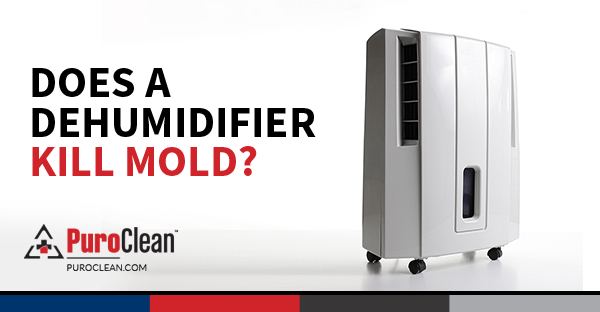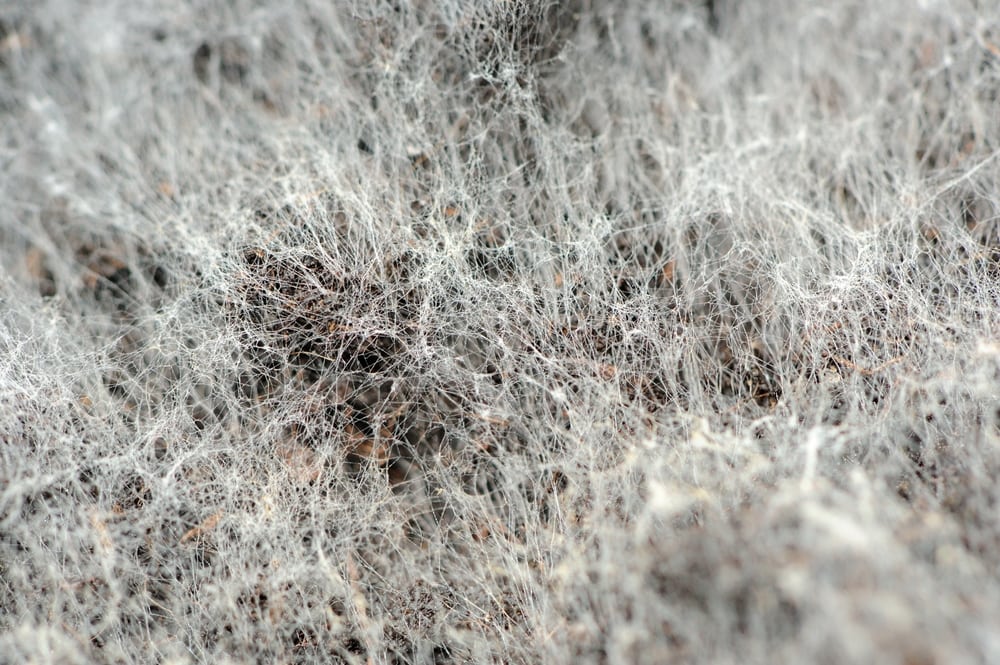Managing an ideal basement humidity level is a unique challenge in Matawan and Monmouth County, NJ, especially since many homes in the area have basements built with cinder blocks or traditional brick foundation walls.
Humidity levels in New Jersey, along with porous construction materials, can make basements prone to dampness. This is especially true in older homes with unfinished basements, where ventilation and insulation might be less effective.
Topics Covered:
- What is the Ideal Basement Humidity Level?
- Why You Should Care
- What is Relative Humidity?
- How to Know If You Have Humidity Issues
- How to Measure Basement Humidity
- How to Control Excess Humidity
- Getting Help: Professional Water Remediation
What is the Ideal Basement Humidity Level?
Ideal basement humidity levels range between 40% and 55%. This range is optimal because it stops excess humidity, which leads to dampness and condensation. It also reduces odors and prevents mildew, which thrives in moist areas.
However, the ideal level for your basement may change with the season and your usage. Maintaining an ideal humidity level helps your basement stay comfortable and healthy.
Your Basement Humidity Levels in Winter
During winter, humidity levels in basements can be tricky to manage. While too much humidity leads to condensation and mold, low humidity can cause dryness issues. In winter, basement humidity should typically stay between 30% and 55%.
Most dehumidifiers don’t need to run during the winter months. If you have forced air, a humidifier may be needed to prevent air that is too dry. Instead, the bigger concern is moisture condensing on basement walls and floors as warm indoor air meets the colder foundation.
If your basement humidity drops below 30%, it may mean an overactive dehumidifier, air leaks, or a heating system drying out the home. However, basements usually don’t get too dry in winter unless they are heavily heated.
Pro Tip: Make sure packed closets allow enough airflow in the summer and winter months. If closets are filled with cardboard boxes, paper, and fabric, they can become breeding grounds for mold spores when combined with high humidity. Keep your door open to allow your dehumidifier to work in confined spaces.
Ideal Basement Humidity in Summer
Ideally, summer basement humidity should stay between 40% and 50%, with an upper limit of 55%. Keeping humidity below 50% is preferable to minimize mold and musty odors.
During summer, basement humidity levels can rise due to high outdoor humidity and increased moisture inside. Warm, humid air entering through open windows or unsealed cracks can significantly raise indoor moisture levels, leading to condensation and mold growth. Overworked air ducts can also allow for condensation, leading to mold formation.
Why You Should Care About Your Basement Humidity
Keeping a low basement humidity level is about more than preventing mold growth and home damage. It’s about protecting your family’s health. Mold allergies can lead to serious health issues.
What is Relative Humidity
Understanding relative humidity is important for managing basement humidity. If you are like me, you can tell if there is high humidity outside by how frizzy your hair is. The higher the relative humidity, the frizzier the hair.
But what does relative humidity mean? Relative humidity measures more than just the presence of moist air; it is a ratio.
The National Weather Service defines relative humidity (RH) as a percentage that measures the amount of water vapor in the air relative to the temperature. In simpler terms, it indicates how close the air is to being saturated with moisture. This level directly impacts how we perceive the comfort level of the air around us.
How Do I Know If I Have High Humidity Issues?
Sometimes, it’s obvious that you have a humid basement. The area may feel damp or you may notice musty odors. You might even see visible water on your basement floor, especially if an area has poor drainage.
Also, condensation on windows or walls, peeling paint, or bubbling wallpaper (more common in finished basements) could indicate an issue.
Efflorescence, a white, powdery deposit on cinder block or concrete walls, is often an early sign of excess moisture in unfinished basements. It forms when water evaporates and leaves behind mineral deposits.
The above are clear signs that you should check the humidity levels. However, in many instances, high basement humidity is difficult to detect, especially when it first starts or in areas that aren’t visible, like basement walls, carpets, or wood structures.
How to Measure Basement Humidity
Measuring your basement humidity level is a breeze with a hygrometer, a device designed to measure moisture in the air. You can easily find one at your local hardware store, an electronics store, or online.
Many modern dehumidifiers even have built-in hygrometers, making it even more convenient for you to maintain a healthy basement environment.
How to Control Excess Humidity in Your Basement
Proper ventilation, moisture control, and a dehumidifier can help lower basement humidity.
Increase Airflow to Reduce Moisture
Good ventilation is key to keeping humidity levels in check. Open closet doors and laundry rooms to prevent stagnant, humid air from building up—dark, enclosed spaces encourage mold growth on clothes, cardboard, and other porous materials.
On dry, mild days, open basement windows to improve airflow. However, keep windows closed when using a dehumidifier or when outdoor humidity is high.
Moisture-Proof Your Basement
Keep your basement dry by sealing foundation cracks and installing vapor barriers. Both are helpful for long-term moisture control.
Another solution is to install a drainage system. This system helps prevent basement flooding and water seepage by collecting and redirecting groundwater.
There are two types of systems:
- Interior drain tile systems, like a French drain or a perimeter drain (also known as a perimeter tile system): Installed around the perimeter of the basement floor, these systems collect water that seeps up from the ground and directs it toward a sump system, which removes collected water from the drainage system before it can accumulate and cause flooding.
- Exterior drainage systems (or an exterior drain tile system): Installed around the outside of the foundation, these systems are pitched so they direct water away from a house before it reaches the basement walls, reducing hydrostatic pressure that can lead to leaks.
Also, proper grading around your home makes sure rainwater flows away from your house instead of pooling near the foundation.
Fix Moisture Problems at the Source
Things like leaking pipes, standing water, and structural damage can cause excess moisture, often leading to serious issues. Regularly inspect your basement for water damage and address any problems immediately. Repair leaks, dry wet areas thoroughly, and take preventive steps like installing a French drain and sump pump to keep water out.
For more information, see: Sump Pump Testing and Tips.
Use a Dehumidifier for Lasting Protection
A dehumidifier is one of the easiest and most effective ways to maintain proper humidity levels. Set it to a healthy relative humidity level, and it will automatically regulate moisture. Choose a dehumidifier that can manage humidity based on your basement’s size and dampness levels.
By keeping your basement dry and well-ventilated year-round, you’ll prevent mold, protect your home, and improve indoor air quality—ensuring a safer, healthier environment for you and your family.
- More on humidity issues: How to Get Rid of Mold on a Bathroom Ceiling
Where Should I Place the Dehumidifier?
It is best to place a dehumidifier in a central location with adequate airflow (at least 12 inches from walls and large furniture). For optimal efficiency, it should be low but slightly elevated and near a drain.
Dehumidifiers come with a bucket that can be emptied, but people rarely remember to do this. The best way to maintain low-humidity environments is to use a hose that drains to a sink or a sump pit.
Maintaining an ideal basement humidity level year-round not only helps with your home’s structural integrity but can also prevent health problems caused by mold and other allergens, like dust mites, which love humid basements.
Professional Water Remediation
If you find excess moisture, water, or mold in your basement (or anywhere else in your home), don’t panic. Contact the trained water remediation and mold experts at PuroClean of Matawan. We aim to restore your home or business to its original condition, providing peace of mind and a healthy living environment.
We serve Matawan and our neighbors in nearby Monmouth County, like Old Bridge, Sayreville, South Amboy, Monroe, East Brunswick, and Keyport.
Don’t wait. Call us now at (732) 351-2442.




 PuroClean of Matawan
PuroClean of Matawan